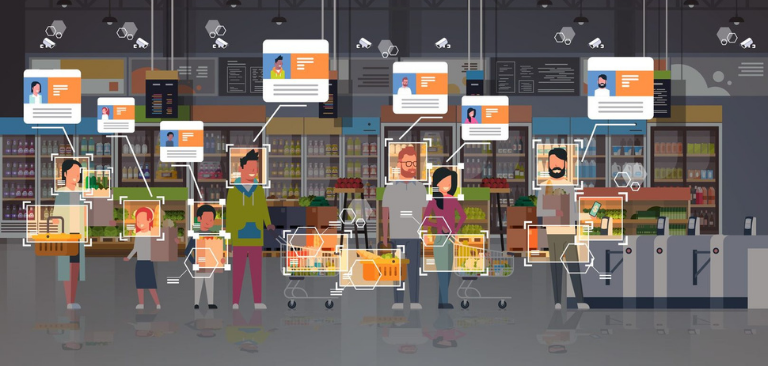Co-op is a retailer in the UK and branches in Southern England have been using facial recognition software to scan customers entering their shops. The retailer claims the technology helps reduce shoplifting and protect employees, but privacy advocates are concerned about its legality.
The use of facial recognition by law enforcement is already controversial. Now, it is increasingly being adopted by the private sector. Southern Co-op introduced the technology quietly for the trial phase in 18 stores over the past 18 months. The retailer did not tell customers that a facial rec system was scanning them and that their data was being collected and analyzed.
The covertness of the roll-out of the tech is a red flag for privacy advocates.
The retailer is using tech from the London-based startup Facewatch. The faces of everyone entering the stores are scanned, turned to numerical data, and compared to a watchlist of suspicious individuals. Once there is a match, employees are alerted via a notification on their smartphones.
“The system alerts our store teams immediately when someone enters their store who has a past record of theft or antisocial behavior,” the company wrote in a blog entry on Facewatch’s website. According to Wired, the post is the only place the retailer has publicly acknowledged using the technology.
The company claims that its use of facial rec is “limited and targeted” to “identify when a known repeat offender enters one of our stores.”
“Only images of individuals known to have offended within our premises, including those who have been banned/excluded, are used on our facial recognition platform,” a spokesperson said. “Using facial recognition in this limited way has improved the safety of our store colleagues.”
The retailer claimed that there had been an 80 percent increase in assault and violence against employees. The number one cause of such cases is employees trying to apprehend shoplifters. The facial rec system “gives our colleagues time to decide on any action they need to take, for example asking them to politely leave the premises or notifying the police if this is a breach of a banning order.”
According to Facewatch, their tech does not add or store anyone’s face to a centralized database; instead, it combines watchlists created by the companies it works with.
“The data is then held stored and shared proportionally with other retailers creating a bigger watchlist where all benefit,” a spokesperson for Facewatch said.
Civil rights advocates have raised some concerns about the use of facial recognition cameras in the private sector. They claim the tech is not regulated and is used disproportionately.
“Once anyone walks into a Co-op store, they’ll be subject to facial recognition scans… that might deter people from entering the stores during a pandemic,” said Edin Omanovic of NGO Privacy International. His colleague, Ioannis Kouvakas, a lawyer, thinks the tech is “unnecessary and disproportionate.”
“You still need to be necessary and proportionate. Using an extremely intrusive technology to scan people’s faces without them being 100 per cent aware of the consequences and without them having the choice to provide explicit, freely given, informed and unambiguous consent, it’s a no go,” Kouvakas explained.













